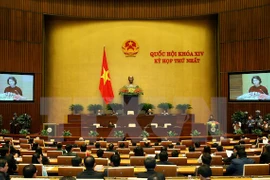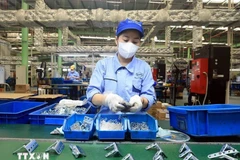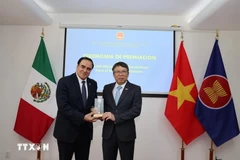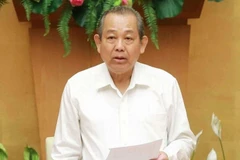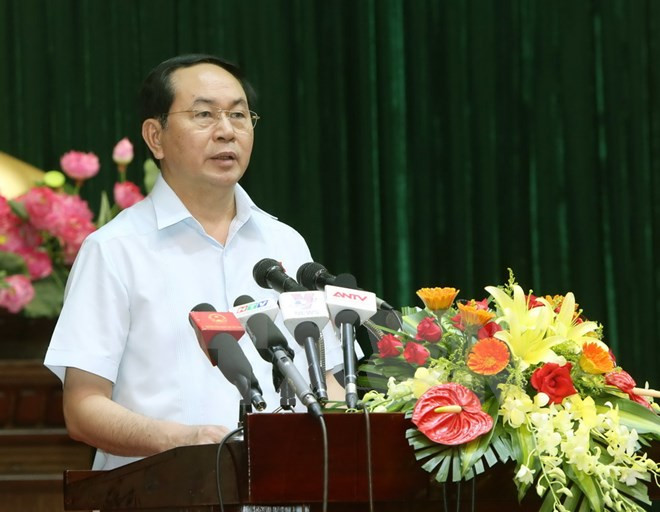 President Tran Dai Quang speaks at the meeting with voters in District 4 of HCM City on August 2 (Photo: VNA)
President Tran Dai Quang speaks at the meeting with voters in District 4 of HCM City on August 2 (Photo: VNA)
HCM City (VNA) – Voters in District 4 of Ho Chi Minh City have voiced their hope that deputies at the 14th National Assembly (NA) will keep their promises made during their electioneering earlier this year.
They met President Tran Dai Quang and other NA deputies of HCM City on August 2 who briefed them about the results of the general election held in May, State personnel, the recent socio-economic development and State budget, and the parliament’s lawmaking and supervisory activities planned for 2017.
Hailing the reinforcement of State personnel at the new NA’s freshly-concluded first session, local constituents expressed concerns about various issues such as socio-economic development, food and traffic safety, environmental pollution, health care, marine sovereignty protection, workers’ salaries, and benefits for national contributors.
On behalf of the deputies, President Tran Dai Quang stressed the lawmakers will fulfill their promises and work with a high sense of responsibility on matters of public interest.
Regarding socio-economic development, he said Vietnam’s economy encountered an array of challenges in the first half of 2016, posting a growth rate of 5.52 percent – lower than the 6.32 percent achieved a year before and this year’s target of 6.7 percent.
However, the economy is still on an upward trend, he assured, pointing out macro-economic stability, a better business climate, higher FDI capital and controlled inflation.
State agencies are determined to take synchronous measures to achieve the targets set for this year by the NA, he added.
In terms of salaries of workers, pensioners and national contributors, the President said the biggest problem to salary hike is the modest State budget, and an important solution is to streamline the State apparatus. The Party and State will continue seeking every possible measure to improve the living conditions of workers and national contributors.
Another issue raised at the meeting is public debt which, the leader said, must have criteria for assessing its safety level from now to 2020.
To mitigate the risks of public debt, it is necessary to take control of GDP growth, inflation, interest rates, the current account deficit and foreign reserves, he added.-VNA



